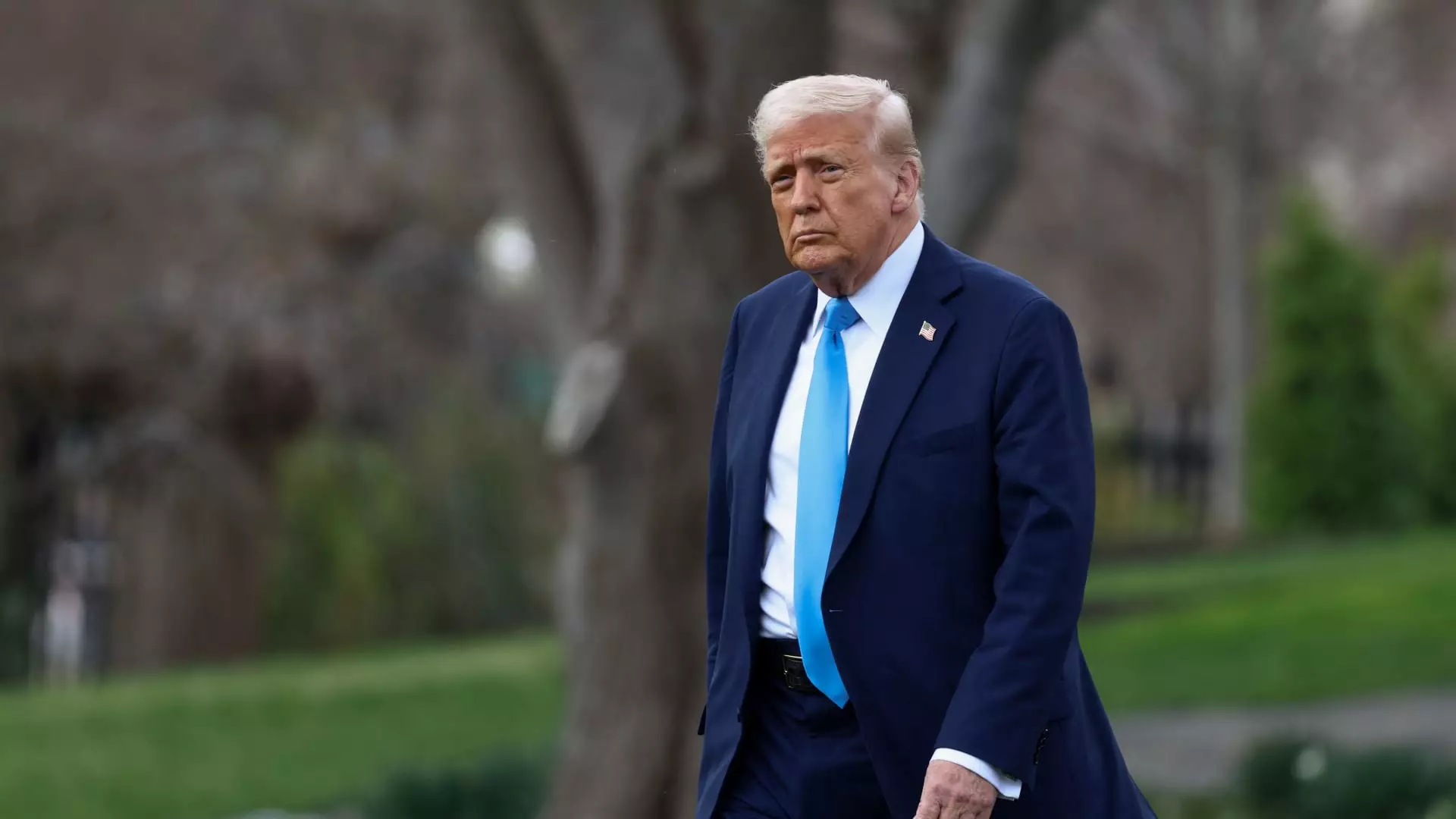In an era dominated by complex geopolitical machinations, former President Donald Trump’s recent comments on Ukraine have stirred up more outrage than clarity. Trump’s emotional outbursts—claiming he was “very angry” when Russian President Vladimir Putin criticized Ukrainian President Volodymyr Zelenskyy—reveal a troubling inconsistency in his foreign policy approach. Here he is, expressing indignation about Putin’s disrespect while simultaneously vilifying Zelenskyy for his handling of the war. It seems more than just a clash of personalities; it portrays the erratic nature of Trump’s foreign policy, where emotions can easily overshadow facts and rational diplomacy. His indignation feels less like a genuine concern for international stability and more like a flawed sense of ownership over the geopolitical narrative.
Shifting Blame and Tariff Threats
Trump’s remarks regarding the imposition of “secondary tariffs” on Russian oil further complicate the discussion. Although the idea of economic sanctions can be a powerful tool in international relations, his threats come off as mere bravado rather than a well-thought-out strategy. If he deems Russia culpable for the ongoing bloodshed in Ukraine, a 25% tariff on Russian oil could be seen as an act of toughness. Yet, these punitive measures risk escalating existing tensions. They might even serve to destabilize the global oil market, impacting not just Russia but also the economic fabric of allied nations. Trump’s repeated assertion that “bombing” Iran would be a consequence of non-compliance on their nuclear deal showcases his preference for aggressive posturing over nuanced engagement.
Ham-fisted Diplomacy
What remains particularly bewildering is Trump’s simultaneous insistence on establishing “good relationships” with Putin and his threats of tariffs and violence. This paradox reveals a deeply rooted contradiction in his diplomatic philosophy: he’s tough on enemies but sentimental with dictators—a dangerous combination that often ends in failure. Genuine statesmanship requires a delicate balance of power; it demands that leaders maintain composure even when navigating tumultuous relationships. Trump’s approach, however, often swings from the heights of affection for authoritarian figures to the depths of outrage at their actions without a steady hand guiding the process.
Dangerous Precedent
Furthermore, the atmosphere Trump cultivates isn’t merely troubling for Ukraine or Iran; it sets a dangerous precedent for international relations overall. Leaders looking to maintain some semblance of order in the global landscape may find themselves wrestling with a stubborn reality—when dialogue collapses under the weight of petty grievances, the stage is set for broader conflict. By impulsively threatening tariffs and bombing campaigns, Trump erodes trust in America’s commitment to stable, constructive diplomacy. Countries like Iran might only become more entrenched in their positions when confronted with such a volatile adversary, undermining the very principle of negotiation.
A Personal Take
While many have been quick to judge Trump’s antics as reckless or shortsighted, it is essential to delve deeper into the implications of his statements rather than getting lost in a sea of righteous indignation. As a centrist liberal reflecting on Trump’s foreign policy, I find it hard to see coherence in his strategy, if it can even be called that. The erratic behavior exemplified in recent developments could set off a chain reaction that results in unprecedented geopolitical chaos, thereby undermining the very interests he claims to protect. Leaders are required to provide stability; they must demonstrate a level of foresight that seems glaringly absent in Trump’s current rhetoric.
Whether intentional or not, Trump’s approach is not only detrimental to U.S.-Russia relations but also echoing through global channels where the consequences could be far-reaching. The loud emotional volatility may grab headlines, but what we actually need are leaders who can provide clearheaded solutions, and these statements are far from that ideal.


Leave a Reply